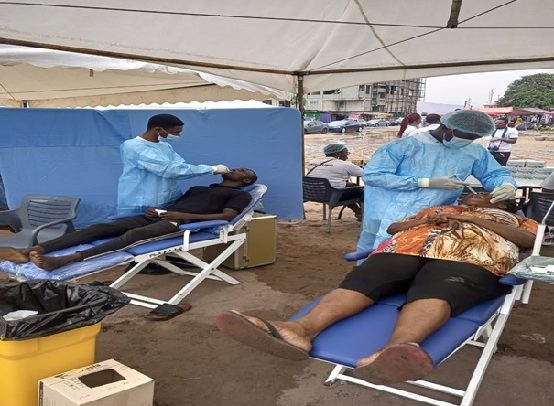
Professor Stephen Kwaku Asare, a fellow in Public Law and Justice at CDD Ghana, has called for the institutionalization of initiatives like Operation Recover All Loots (ORAL), emphasizing that such efforts should be complemented by Operation Prevent Asset Losses (OPAL) to ensure future prevention of corruption.
The ORAL initiative, described as a “hotline” for citizens to report corruption, aims to validate claims, investigate, and forward credible cases to appropriate state agencies for prosecution.
While this initiative has generated public excitement, it has also highlighted a trust deficit in existing anti-corruption institutions.
Speaking on The Keypoints with Alfred Ocansey on January 18, Professor Asare noted that, “The fact that ORAL enjoys such massive support underscores the perceived ineffectiveness of current anti-corruption agencies. Thus, the need for Operation Prevent Asset Losses (OPAL).”
He attributed this to the inability of these bodies to prevent corruption, investigate thoroughly, or recover stolen assets.
The issue of corruption and the mismanagement of public assets has long plagued Ghana, stalling economic progress and diminishing public trust in governance.
Professor Asare shed light on President Mahama’s renewed commitment to safeguarding public assets and combating corruption through comprehensive reforms and initiatives.
He emphasized that the President’s role as a trustee of public assets is enshrined in Ghana’s Constitution.
Articles 36(2) and 58 highlight the President’s oversight responsibility and executive authority, respectively, in protecting public resources.
Additionally, Article 105(a) mandates the eradication of corruption and abuse of power, reinforcing the President’s duty to uphold transparency and accountability.
“The President holds a constitutional duty to protect public lands and resources,” Professor Asare stated.
He proposed a multi-faceted approach to tackle corruption effectively, including:
* Reforming the Judiciary: Establish special courts to expedite financial crime trials, limit undue adjournments, and ensure timely resolution of cases.
* Empowering Prosecutors: Separate prosecution functions from the Attorney-General’s office to reduce political interference.
* Enhancing Investigative Bodies: Strengthen institutions like the Office of the Special Prosecutor and the Economic and Organized Crime Office (EOCO) with resources and autonomy to execute their mandates effectively.
* Environmental Accountability: Investigate corruption in illegal mining and use recovered funds to remediate environmental damage.
While the ORAL initiative has inspired optimism, Professor Asare cautioned against setting unrealistic expectations about recovery figures.
“If the promised recoveries don’t materialize, it could undermine public trust and future fiscal policies,” he warned.
He stressed the importance of clear communication, ensuring citizens understand that recovery processes are complex and time-intensive.
The professor reiterated that fighting corruption is not a one-time event but a continuous process requiring structural reforms and political will.
“If we don’t reform our institutions, the fight against corruption will always reset to square one,” he concluded.
Ghanaians are eager for a meaningful fight against corruption and the preservation of public resources for future generations.
The ORAL initiative, alongside proposed reforms, represents a significant step toward rebuilding trust in governance and promoting accountability.
However, its success hinges on sustained efforts to address systemic issues, empower institutions, and manage public expectations effectively.
As the government embarks on this journey, the citizens’ vigilance and active participation will be crucial in ensuring the realization of these aspirations.
By Christabel Success Treve
The post Complement ORAL with OPAL – Prof Kwaku Asare suggests first appeared on 3News.
Read Full Story




















Facebook
Twitter
Pinterest
Instagram
Google+
YouTube
LinkedIn
RSS